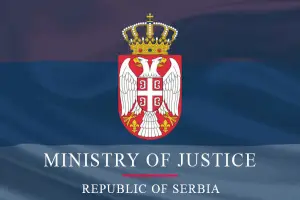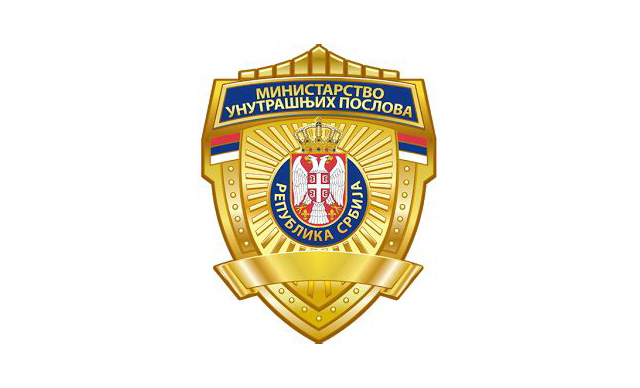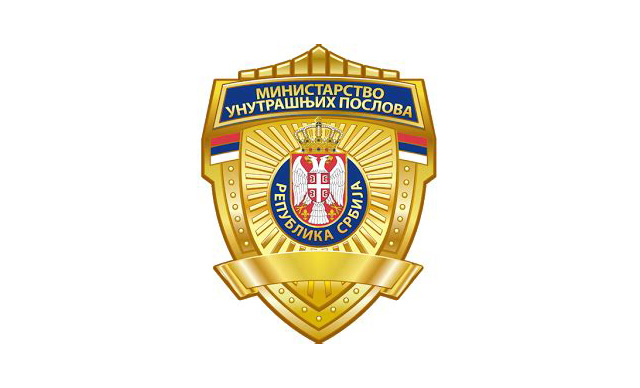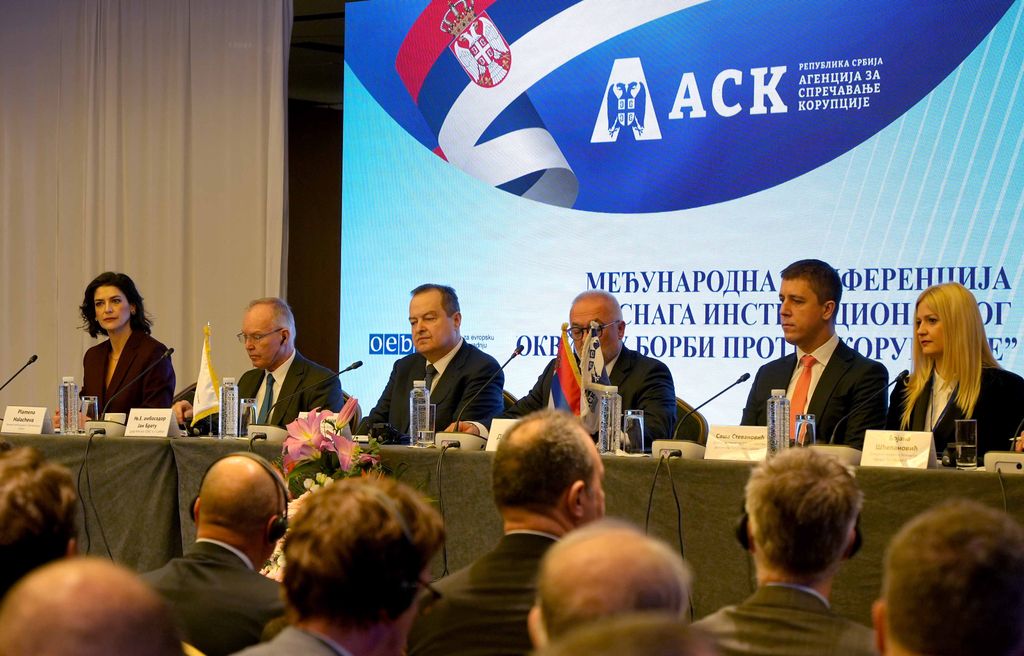- Serbia
Get to know Serbia
- Citizens
Culture and science
Health services
Pension and disability insurance
- Business
Employment
Economy
- Media
- Government
- Contact
Keep in touch
Contact form
Back
Keepin touch
Whether you have a question, comment, suggestion or any problem in the purview of the government, send us your message and we will try to respond as soon as possible. If your problem is not in our purview, we will forward your message to the relevant institution.
Q:
A:
Fighting corruption calls for national consensus
Belgrade,
15 July 2004
President of the Anti-Corruption Council Verica Barac said that the case of Sartid is one of the gravest examples of corruption in Serbia.
Barac presented a report on privatisation of Sartid. She said that the Council wanted to see the course of Sartid’s privatisation, as well as who took part in it, and what was the connection between the executive and legal authorities. On the other hand, the Council wanted to initiate the talks in the judiciary with a view of overcoming the problem of corruption.
Barac reminded that Sartid was sold as legal entity. The steel plant with five subsidiaries was sold as one company, she said. The whole affair was a complete feigned process which is allegedly called bankruptcy, Barac said, adding that there was no protection of company’s property in the bankruptcy procedure.
According to her, the Council suggested that this report is submitted to all commercial courts in the Republic as an example what must not be done in the judiciary, as it denies all basic judicial principles, including the very idea of justice. Barac said that the Council is particularly struck by the fact that all judges participating in the Sartid case soon got promoted.
She said that the case of Sartid is crucial for realizing the issue of responsibility, both judicial and executive, and stressed that there is enough evidence against the ministers and judges in the process of privatisation of this company.
The Council will keep on insisting that this case is resolved as this is an international scandal since it includes foreign creditors. Those cases are organised before international courts of arbitration, which generally induces great material and moral damage inflicted to our state, Barac said.
She said that the Council observed the work of Privatisation Agency in the previous period and noticed many irregularities pointing to corruption. There are indications of linked persons who were the decision-makers both on the side of the state and consultants, she said, reminding that the Council had pointed to these irregularities.
According to her, consultancies and decision-makers in the Agency and the Ministry were often linked. Former Privatisation Agency director Mirko Cvetkovic was also the executive director of Ces Mekon consultancy, Barac said, adding that over €30 million were given for consultancy services, half of which was from the budget.
Barac said that there is no national consensus in the fight against corruption and that democratic institutions cannot be built with such level of corruption.
Barac reminded that Sartid was sold as legal entity. The steel plant with five subsidiaries was sold as one company, she said. The whole affair was a complete feigned process which is allegedly called bankruptcy, Barac said, adding that there was no protection of company’s property in the bankruptcy procedure.
According to her, the Council suggested that this report is submitted to all commercial courts in the Republic as an example what must not be done in the judiciary, as it denies all basic judicial principles, including the very idea of justice. Barac said that the Council is particularly struck by the fact that all judges participating in the Sartid case soon got promoted.
She said that the case of Sartid is crucial for realizing the issue of responsibility, both judicial and executive, and stressed that there is enough evidence against the ministers and judges in the process of privatisation of this company.
The Council will keep on insisting that this case is resolved as this is an international scandal since it includes foreign creditors. Those cases are organised before international courts of arbitration, which generally induces great material and moral damage inflicted to our state, Barac said.
She said that the Council observed the work of Privatisation Agency in the previous period and noticed many irregularities pointing to corruption. There are indications of linked persons who were the decision-makers both on the side of the state and consultants, she said, reminding that the Council had pointed to these irregularities.
According to her, consultancies and decision-makers in the Agency and the Ministry were often linked. Former Privatisation Agency director Mirko Cvetkovic was also the executive director of Ces Mekon consultancy, Barac said, adding that over €30 million were given for consultancy services, half of which was from the budget.
Barac said that there is no national consensus in the fight against corruption and that democratic institutions cannot be built with such level of corruption.
-
 Belgrade, 5 January 2026
Belgrade, 5 January 2026Further measures to implement GRECO recommendations
-
 Belgrade, 30 June 2025
Belgrade, 30 June 2025Criminal charges filed against 657 people for corruption since beginning of year
-
 Belgrade, 3 June 2025
Belgrade, 3 June 2025State determined to systematically suppress corruption, white-collar crime
-
 Belgrade, 3 March 2025
Belgrade, 3 March 2025153 individuals arrested in anti-corruption operations in February
-
 Belgrade, 15 February 2025
Belgrade, 15 February 202518 individuals arrested in continued fight against corruption
-
 Belgrade, 14 February 2025
Belgrade, 14 February 202513 individuals arrested for fraud, abuse of position of responsible person
-
 Belgrade, 10 December 2024
Belgrade, 10 December 2024Coordinated work of all state bodies in fight against corruption
-
 Belgrade, 18 March 2016
Belgrade, 18 March 2016State determined in fight against corruption
-
 Belgrade, 25 January 2016
Belgrade, 25 January 2016Coordination of activities in combating corruption
-
 Belgrade, 29 November 2015
Belgrade, 29 November 2015Uncompromising fight against corruption, crime

